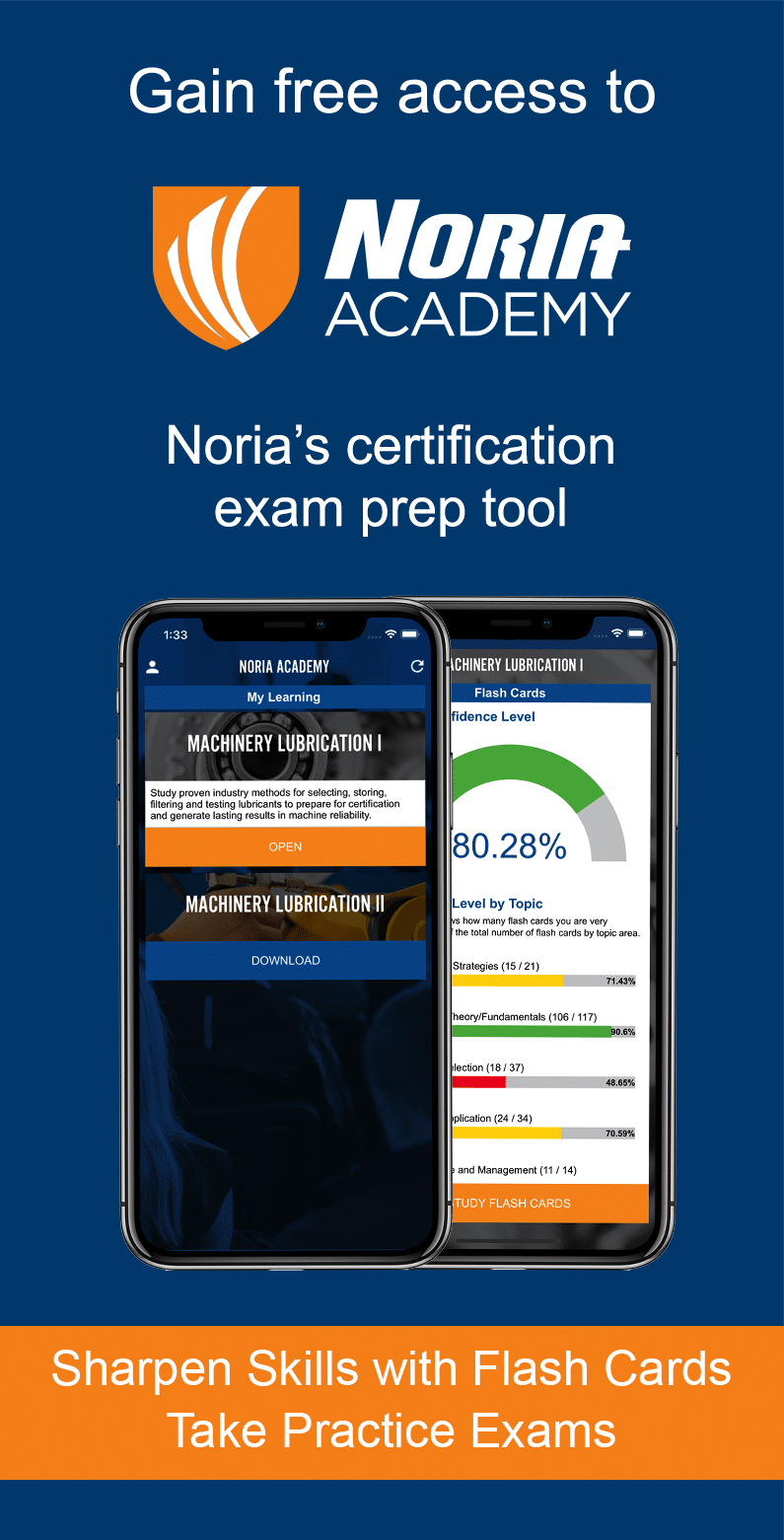Machinery Lubrication Technician II
It’s a fact … a well-designed lubrication program with skilled lubrication technicians can quickly and substantially reduce downtime and operating costs.
If yours is like most companies, you’re winging your way around lubrication. Your machines keeping wearing out and breaking the same way because you keep lubricating them the same old way. And, you get frustrated because your lubricants should last longer but you don’t know what to do.
This course is designed to help you prepare for the ICML Level II Machine Lubrication Technician certification.
In This Intensive Training Course You Will Learn:
- Lubrication methods that dramatically increase mean-time-between-failure
- How to correctly manage lubricants in reservoirs and sumps
- How to write dependable equipment lubrication procedures
- Downtime reduction strategies that won’t break the bank
- How to select the right lubricant for your application
- When to select grease or oil as the lubricant of choice
Through this Certification Course, participants have the opportunity to accrue 5 Continuing Professional Development (CPD) points.
- Financial benefits from achieving lubrication excellence
- Four equipment maintenance strategies, and when each applies
- Important implementation steps to lubrication excellence
- Six important functions of lubricating oils
- How oils and greases are formulated and why it is important
- How friction is generated in lubricated machinery
- The importance of oil film thickness and critical clearances
- How lubricant properties irreparably change
- Seven important physical properties of a base oil
- The importance of API’s five base oil categories
- What causes grease to dry out and 18 ways to prevent it
- How to detect the root causes of lubricant oxidation
- When to select one of the six most commonly used synthetic base oils
- How to use temperature to determine the right base oil for your machine
- How to select grease thickeners for your application
- Key additives that enhance lubricant performance
- Viscosity grades, measurement, and reporting
- Why Viscosity Index is important
- What causes oil viscosity to change and how to set monitoring limits
- Lubricant performance tests and reporting – what you need to know
- How water contamination generates other contaminants
- How to control and eliminate aeration problems
- Important USDA requirements and government regulations for food-grade lubricants
- What you need to know about food-grade additives, base oils and grease thickeners
- Guidelines for food-grade lubricants
- How to protect against incompatible grease mixtures
- Advantages and disadvantages of centralized lubrication systems
- Best practices for greasing motor bearings
- How to control pressure when greasing bearings
- The unique problems caused by over-greasing – specific steps to eliminate
- 3 critical instructions to give your electric motor rebuild shop
- Comparing single- and multi-point lubrication options
- How to calculate greasing intervals and quantity
- Best practices for ultrasonic/sonic-based greasing
- Overview of oil lubrication methods and devices
- How to use oil mist and other automatic lubrication methods
- Using pressure spray methods for gearboxes
- Best practices for the maintenance of grease guns and fittings
- How to protect against problems caused by constant-level oilers
- Overview of single-point direct lubrication systems
- The 8 most common journal bearing lubrication problems
- How to select journal bearing viscosity based on speed
- The nine critical factors affecting rolling-element bearing lubricant selection
- How to convert required operating temperature viscosity to ISO viscosity grades
- 5 key requirements for gear oil
- How to select the best viscosity for a gear lubricant
- Best practice guidelines for storing spare gearboxes – lubrication matters!
- 10 conditions that may require synthetic gear lubricants
- Lubrication best practices for enclosed gears – a 12 point checklist
- Mastering the challenges of open gear lubrication
- How to read a motor oil label: what really matters
- The 6 critical objectives a motor oil must accomplish
- Understanding API service classifications for engine and gear oils
- The #1 reason automatic transmission fluids fail and how to protect against it
- Service classifications for automotive greases – how to select
- Extending engine life – surprising engine oil filter study results
- Steps you can take right now to combat compressor lubricant failure
- The most common compressor lubricant stressors
- When to use synthetic compressor lubricants and why
Course Info
- Dates
- 13 May - 17 May 2024
- 22 Jul - 26 Jul 2024
- Location
- Johannesburg
- Duration
- 5 Days
CPD Points: 5

